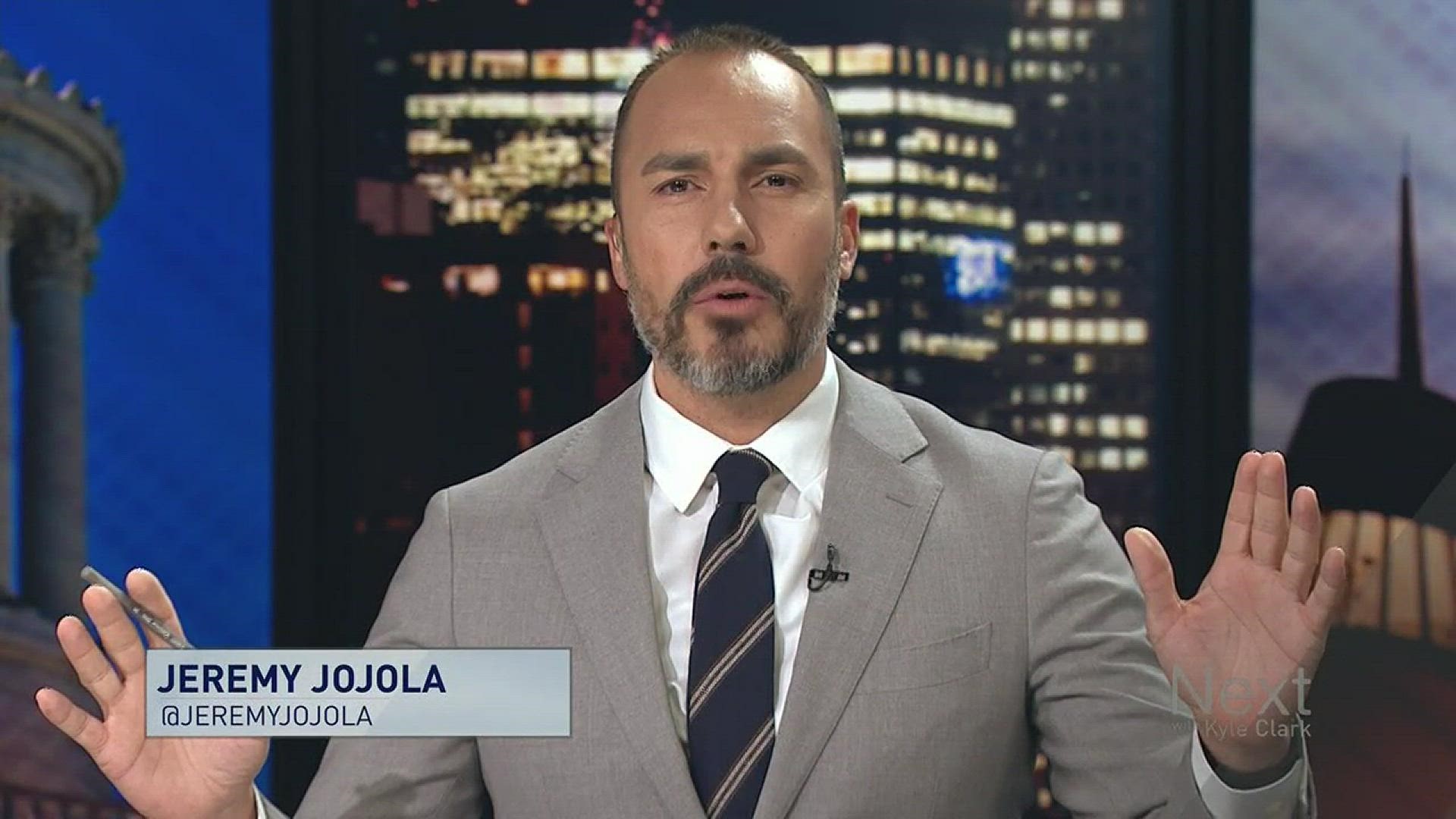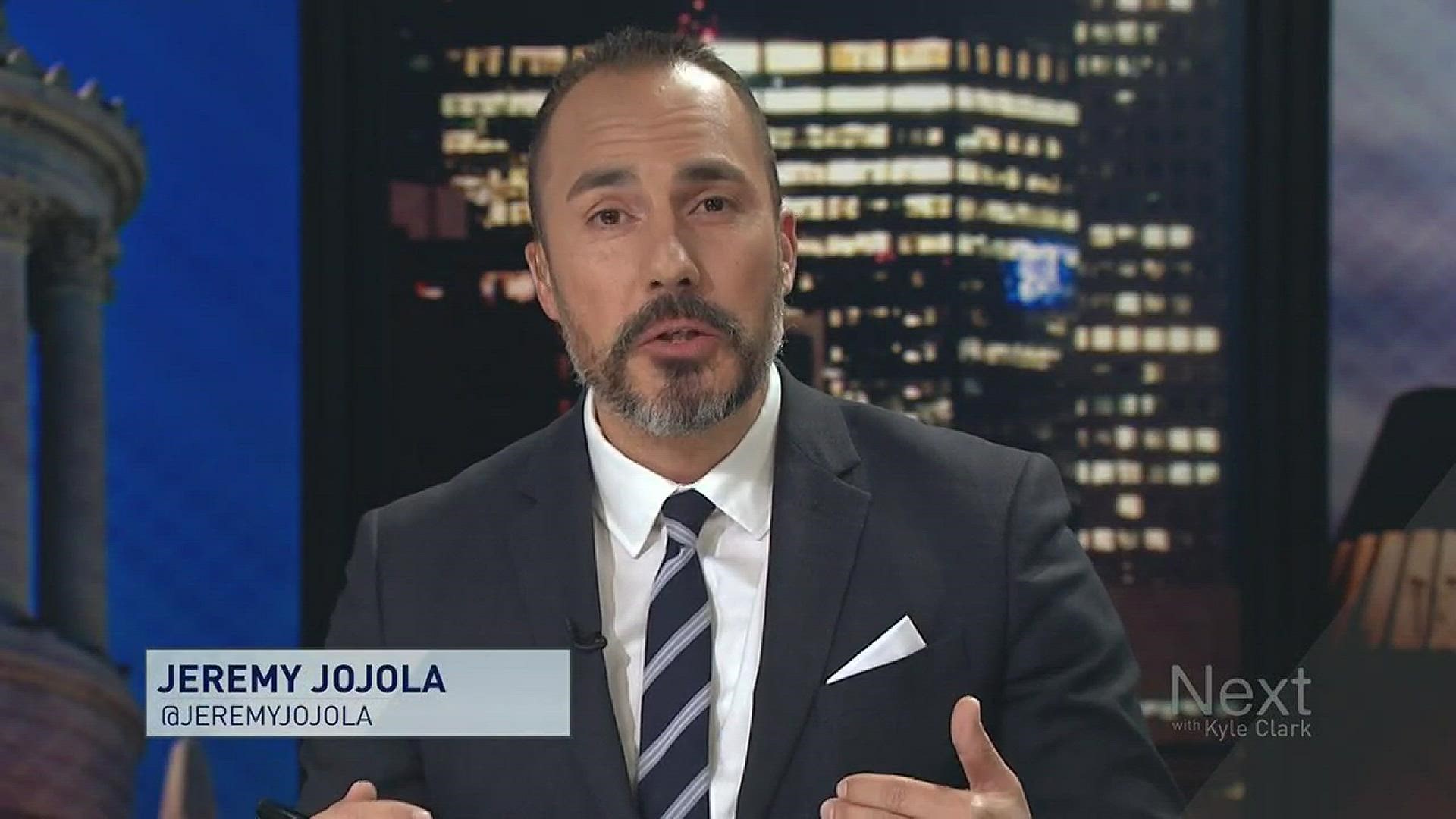DENVER — Denver’s proposed supervised injection site collided with federal law Tuesday.
The United States Attorney's Office for the District of Colorado and the Denver Field Office of the Drug Enforcement Administration released a joint statement saying supervised safe injection sites are illegal under federal law.
In November, Denver City Council approved an ordinance to open one pilot location that would allow people to use illegal drugs like heroin with someone nearby in case they overdose. City Council member Albus Brooks, who helped write the ordinance, told 9NEWS the plan would be to reassess the program after two years.
To open the site, the state legislature would have vote to waive a nuisance ordinance, so the property wouldn't get shut down for drug use on the property.
The statement from Colorado's U.S. attorney and the DEA started with saying that such a site would be illegal under federal law, with the potential penalties including fines up to $250,000 and up to 20 years in jail for people who own, manage the site or utilize it.
Parts of the Denver ordinance were shaped by a similar program already in effect in British Columbia, Canada. Federal authorities took aim at that as well, writing:
"Indeed, a recent review of one facility in Vancouver found that the overdose death rate in the immediate vicinity of the facility was actually the highest in the city. This may be due in part to the fact that while these facilities are touted as being “safe” because of the availability of opioid antagonists (e.g., Naloxone or Narcan), these facilities are not actually limited to opioid users. Those injecting methamphetamine, cocaine, or other drugs for which there is no counteragent are also welcome to use the facility. The Denver facility likewise would welcome users of any drug, not just opioids."
Some of the information from the Colorado U.S. Attorney and DEA’s letter came from a study published by Vermont’s Opioid Coordination Council, made up of 22 people appointed by the governor to tackle the opioid crisis. The study published a map tracking overdose death surrounding Vancouver’s first safe injection site opened in 2003.
The study also found it didn’t believe the concept of safe injection sites will be effective.
When 9NEWS spoke to Andy Watson, a spokesman for the B.C. Coroner's Service, he said the program has already saved lives.
"Since [safe injection sites] opened," Watson said, "not a single death has been reported at either of types of sites province-wide."
Watson also said it’s not a perfect solution. Across British Columbia, Watson said the number of people dying from overdoses since 2016 has risen. In 2016, there were under 1,000 deaths for the year. In 2017, that number rose to 1,400 deaths. British Columbia is on track to see more than 1,500 deaths from illegal drug overdoses in 2018.
Watson attributed the rise partly to increased access to fentanyl, a potent synthetic opioid.
Carrie Stefanson with Vancouver Coastal Health also told 9NEWS their "harm reduction initiatives," like providing clean needles, have helped reduce the spread of disease.
"The number of cases of HIV diagnosed among people who inject drugs has declined dramatically in British Columbia by 86 percent since 2005," she said via email.
Kevin Hollett with British Columbia Centre on Substance Use, a research group in Canada, said it’s no surprise that overdose death rates can be higher around supervised use sites since that’s why those sites were placed there in the first place.
In contradiction to the letter released by the feds, Hollett said the numbers show the opening of Insite, Vancouver’s first supervised injection site, led to a decrease in overdose deaths in surrounding neighborhoods.
Watson with the coroner’s office said “presumably” that is correct because no one had passed away at one of these sites, but it can be tricky because deaths are recorded by townships and not by street.
While the DEA and U.S. Attorney's Office wrote they applaud the motive and desire to address drug addiction and overdoses, they also fear these sites may attract criminals, “just like so-called crack houses.” The said the efforts to address drug use must follow federal law.
That’s a change Vancouver Police Department said they haven’t seen play out, according to Constable Jason Doucette. The department’s crime statistics in District Two, where the first supervised injection site is housed, shows violent crime stayed roughly the same since 2013 while property crimes went up, which Doucette said it did across the entire city.
Doucette said because the site was put in an area where it was deemed necessary, drug use and other crime was already there. The site didn’t spark the number of crimes to drastically drop or go up.
Vancouver has since opened several supervised injection sites within the city and in other cities as well.
Albus Brooks, who helped write Denver’s ordinance, told 9NEWS that when it comes to the federal government’s opinion on safe injection sites, he’d address it when that day came. Tuesday, he told 9NEWS that Denver can’t wait on the federal government to take action:
"Last year, more than 1,000 of our neighbors in Colorado died of an overdose. As the U.S. Department of Health and Human Services has continued to affirm, we are facing a national public health emergency, and cities are on the front lines. While we recognize the role of the federal government, we cannot wait for federal action while the death toll rises. These people are not simply addicts. They are our neighbors, friends, and family members who are experiencing addiction. As a designated local public health department, the city through the Denver Department of Public Health and Environment has the authority under law to address and regulate this type of emergency. Extensive research and global precedent demonstrate that supervised use sites save lives. Choosing not to save the lives of our neighbors is an injustice that threatens to destabilize the very foundation of our society. This is a piece of a larger plan to address this epidemic, and as leaders we know that saving lives takes precedent over politics. Now is the time to act."
“Cities across the nation are considering opening supervised use sites to combat the growing overdose epidemic. It is estimated that emergency services in the city are responding to almost three overdoses per day. Studies have shown that supervised use sites not only save lives, they do not increase crime in the areas where they are located and save money by reducing the number of 911 calls, ambulance responses, hospital stays, and treatment for transferable diseases.”
However, even supporters said there isn’t enough data and research to fully understand how a safe injection site would impact a city over time.
While the nonprofit research group RAND published an article Thursday saying U.S. cities should explore the idea of safe injection sites considering the opioid epidemic, researchers also said there isn’t as much information as some would wish.
Beau Kilmer, the co-director of RAND Drug Policy Research Center, said in an email that apart from the legal issues, “The scientific evidence about the effectiveness of SCSs is limited in quality and the number of locations evaluated.”
There are more than 100 sites in roughly 60 cities around the world.
Kilmer wrote, “Many SCSs have been around for 15 to 30 years. Persistence does not imply effectiveness, but it seems unlikely that these SCSs, which were initially controversial in many places, would have such longevity if they had serious adverse consequences for their clients or communities.”
Kilmer then said supervised injection sites can reduce the risk of fatal overdose, disease transmission and issues associated with unhygienic drug use practices but said it’s unclear “about the size of the population-level effects of SCSs.”
To implement the supervised use site pilot program in Denver, a bill will have to pass through the Colorado State Legislature in the 2019 session.
State Representative Leslie Herod (D-Denver) said she will be one of the sponsors for a bill to waive the nuisance ordinance. She said the bill is in the works of being written and the plan is still to introduce it during it in January, despite what the U.S. Attorney's Office and DEA said.


